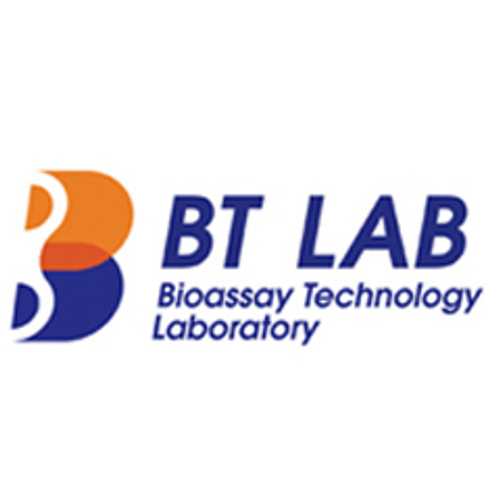Product Description
Mouse Arginase-1 (ARG1) ELISA Kit | AE59353MO | Abebio
Species Reactivity: Mouse (Mus musculus)
Abbreviation: ARG1
Alternative Name: Arginase 1|liver-type arginase|type I arginase
Application: ELISA
Range: 0.156-10 ng/mL
Sensitivity: 0.056 ng/mL
Intra-Assay: ≤4.2%
Inter-Assay: ≤7.7%
Recovery: 0, 9
Sample Type: Serum, Plasma, Other biological fluids
Detection Method: Sandwich
Analysis Method : Quantitive
Test Principale: This assay employs a two-site sandwich ELISA to quantitate ARG1 in samples. An antibody specific for ARG1 has been pre-coated onto a microplate. Standards and samples are pipetted into the wells and anyARG1 present is bound by the immobilized antibody. After removing any unbound substances, a biotin-conjugated antibody specific for ARG1 is added to the wells. After washing, Streptavidin conjugated Horseradish Peroxidase (HRP) is added to the wells. Following a wash to remove any unbound avidin-enzyme reagent, a substrate solution is added to the wells and color develops in proportion to the amount of ARG1 bound in the initial step. The color development is stopped and the intensity of the color is measured.
Product Overview: Arginase is the fifth and final step in the urea cycle, a series of biophysical reactions in mammals during which the body disposes of harmful ammonia. Specifically, arginase converts L-arginine into L-ornithine and urea. In most mammals, two isozymes of this enzyme exist; the first, Arginase I, functions in the urea cycle, and is located primarily in the cytoplasm of the liver. The second isozyme, Arginase II, has been implicated in the regulation of the arginine/ornithine concentrations in the cell. It is located in mitochondria of several tissues in the body, with most abundance in the kidney and prostate. It may be found at lower levels in macrophages, lactating mammary glands, and brain. The second isozyme may be found in the absence of other urea cycle enzymes. Arginase consists of three tetramers.
Stability: The stability of ELISA kit is determined by the loss rate of activity. The loss rate of this kit is less than 5% within the expiration date under appropriate storage condition. The loss rate was determined by accelerated thermal degradation test. Keep the kit at 37°C for 4 and 7 days, and compare O.D.values of the kit kept at 37°C with that of at recommended temperature. (referring from China Biological Products Standard, which was calculated by the Arrhenius equation. For ELISA kit, 4 days storage at 37°C can be considered as 6 months at 2 - 8°C, which means 7 days at 37°C equaling 12 months at 2 - 8°C) .
 Euro
Euro
 USD
USD
 British Pound
British Pound
 NULL
NULL












